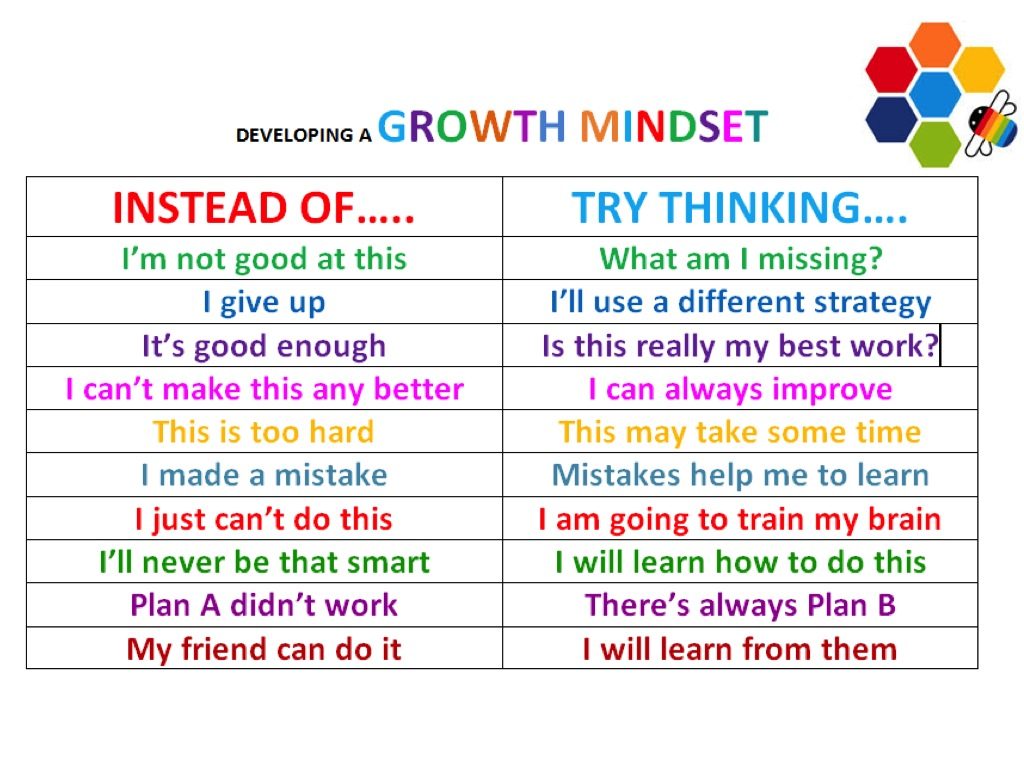 It’s natural to want to praise children when they do something well, but we need to do this carefully. Research suggests that the type of praise that we use can have a big impact. It’s all a matter of context in fact and even positive praise can encourage a fixed mindset.
It’s natural to want to praise children when they do something well, but we need to do this carefully. Research suggests that the type of praise that we use can have a big impact. It’s all a matter of context in fact and even positive praise can encourage a fixed mindset.
Praising our children by saying things like “you’re a natural!” or “you seem to be able to turn your hand to anything!” without clarity of the process by which they got to that point can lead to the belief that being good at something is out of their control. In other words understanding how they got there is the key.
This focus on being good at something might lead to children feeling happy in the short-term, but confused when the reason they were praised is not evident. If children believe that they succeeded in something simply because they are gifted, they can end up re-evaluating their abilities if it doesn’t go as well next time.
Instead the grown-ups around the child can focus praise on the effort they’ve made to get to that point of triumph, the strategy they used or the outcome itself, saying things like “you’ve worked so hard on this, well done!” or “you get better every time because of all the practise you’ve been doing” or “you have found a great way to do that, it worked out really well”.
This kind of feedback helps to develop children’s resilience to failure as it teaches them what to do when they are challenged or fail – try again, try harder or try a different way, all things that are within their own control.
This type of praise is sometimes called ‘process praise’ and Dweck’s research found that children were more motivated when their parents used more of this kind of praise.
That’s not how I’ve praised my child so far – is it too late to change?
It’s never too late to change our mindsets. We’ve worked with children from the age of three, right up to university students and adults, and we’ve seen that anyone can develop a growth mindset.
It seems that the trick is to be open with children. If you are going to change the way you praise your child or the type of behaviours that you encourage, let them know why you are doing it. Tell them all about Growth Mindsets.
We’re not saying that everyone is born with the same abilities, but what is clear is that practise, effort and finding the best strategy are crucial in determining how successful our children are in life, perhaps even more so than the natural abilities that they were born with.


